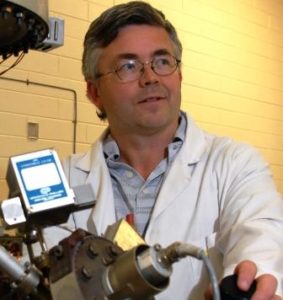
It powers our homes, dictates when and how well we sleep – and can even be harnessed to map the environment around us. However you look at it, there’s just no making light of light.
That’s why it will be the hot topic of three ‘Flinders Investigators’ lectures to celebrate National Science Week, with the events at Flinders city today, Tonsley tomorrow and Bedford Park campus on Wednesday.
Starting big – and it doesn’t get much bigger than the Sun itself – the first lecture, on Monday (17 August), will see Professor Joe Shapter and Professor David Lewis reveal the latest and most incredible ways in which solar power can be harnessed to meet the world’s growing energy demands.
Professor Shapter is Dean of Flinders University’s School of Chemical and Physical Sciences, while Professor Lewis is a Professor of Materials Science, and the Director of the Flinders Centre for NanoScale Science and Technology.
Each will share their ideas about how to address the hottest topic under the sun – but the audience can decide for themselves who really lights their fire.
The second lecture, all of which are in collaboration with Flinders University’s Faculty of Science and Engineering, will turn the audience’s focus on the eyes – shedding light on how the windows to the soul may also hold the key to a good night’s sleep.
Ben Olsen, Managing Director of Re-Timer Pty Ltd, the South Australian company behind the body clock shifting Re-Timer glasses, will talk on Tuesday (18 August) about how the technology invented by Flinders University’s Professor Leon Lack harnesses the power of LEDs to adjust our internal body clocks.
At Flinders University’s new Tonsley facility, Mr Olsen will share how Re-Timer’s green light technology helps people with everything from jetlag to delayed onset sleep disorder, following its evolution in Flinders research labs from a research dream to a viable commercial reality.
In the final part of Flinders’ illuminating triptych, Robert Keane from Flinders’ School of the Environment, and Dr Andrew McGrath from Airborne Research Australia, also based in the School of the Environment, lay out how Light Detection and Ranging (LiDAR) technology can be used to map the environment around us.
Dr McGrath will show how LiDAR is having an impact on airborne research, while Mr Keane will bring his audience, at Flinders’ Science Innovation and Learning Centre at Bedford Park, back to Earth by identifying some of its more unexpected and eye catching terrestrial applications.
For more information, or to register for any of Flinders Science Week Flinders Investigators lectures, click here.

